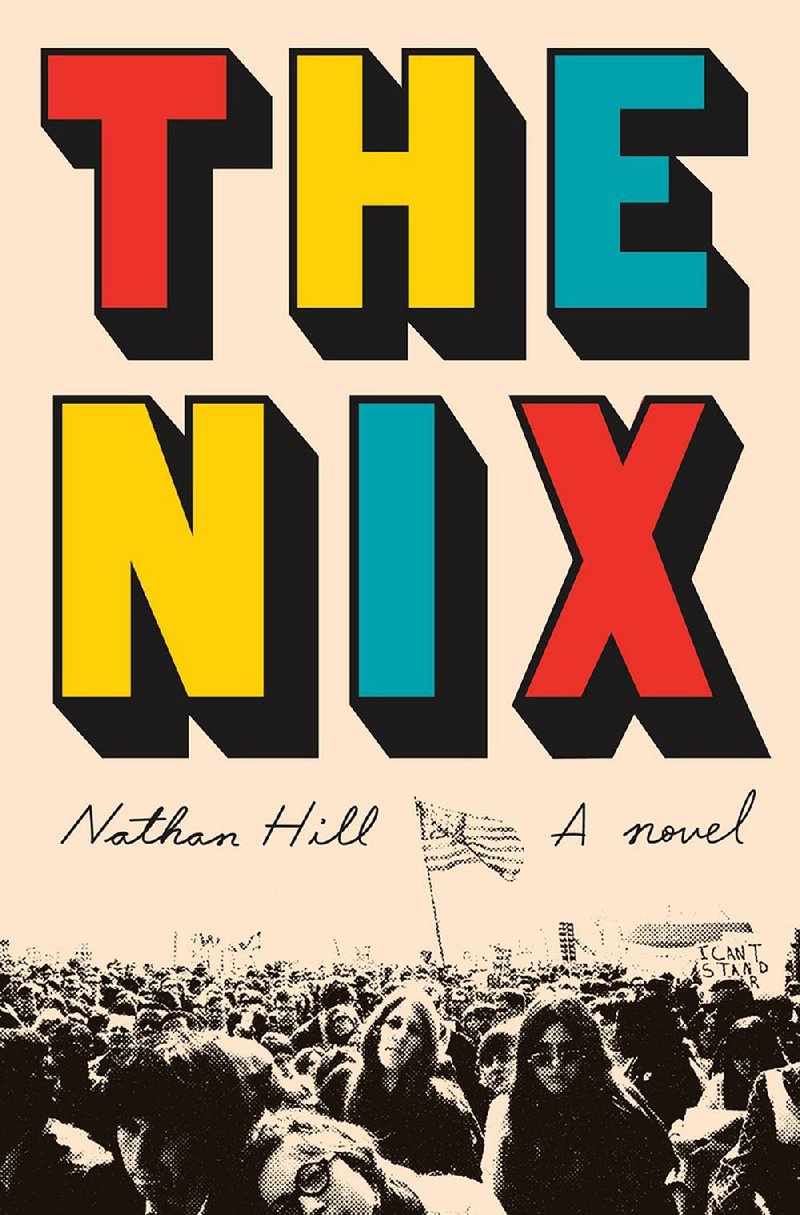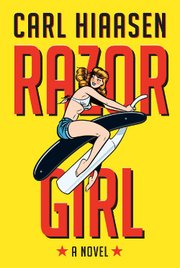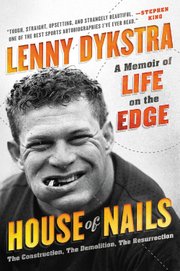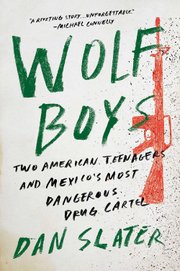There is a feeling, sometimes expressed in exasperation, that the pace and spin of modern life is such that it's difficult for a realistic novelist to avoid being overtaken by its absurdity.
For instance, the current presidential campaign is arguably playing out as something more farcical than the fictional, parallel 2016 campaigns depicted in the most recent seasons of TV shows House of Cards or Veep. Earlier this year I abandoned a perfectly reasonable dark satire by Republican political consultant Stuart Stevens (The Innocent Have Nothing to Fear, Knopf, $24.95) simply because the characters obviously based on Donald Trump and Hillary Clinton felt so much blander than the real thing. Absent the exhaustion with politics that the ongoing campaign has wrought, it might have been very enjoyable to read of the exploits of Stevens' Lee Atwater-esque protagonist J.D. Callahan -- who we might presume is also based on the author. But Stevens' Colorado Gov. Armstrong George and Vice President Hildy Smith felt faint and conventional compared to their respective models, Trump and Clinton.
So I abandoned The Innocent largely because other books commanded my attention.
One of these is Nathan Hill's highly lauded 620-page debut The Nix (Knopf, $27.95), an audacious and at times brilliant comic ramble through the contemporary condition. It too features a would-be presidential candidate who bears a striking resemblance to Mr. Trump (in this case it's Sheldon Packer, the anti-immigration governor of Wyoming).
It is 2011 and at an appearance in Chicago, Packer is pelted by gravel from the fist of Faye Andresen-Anderson, a birdlike 61-year-old teaching assistant at an elementary school. (The governor's allies insist this "shows how the radical liberal agenda has taken over public education.") The incident is caught on video and the country is divided between those who consider the "Packer Attacker" a hero of liberty or an enemy of the state. The press does a little digging, and identifies the "Packer Attacker" as a former '60s radical.
One of the few people in the nation who isn't immediately aware of the incident is Faye's son Samuel, a once promising writer who now teaches English at a small college outside of Chicago. Samuel spends most of his nights immersed in a World of Warcraft-style computer game, so he's a little late to realize that his mother -- who abandoned him and his father when Samuel was 11 years old -- has resurfaced as an internet sensation.
As it happens, Faye's notoriety comes at a convenient time for Samuel -- he's able to stave off his publisher's demands that he return an advance for the novel he has never written by promising to write a quick and dirty expose of his mother's sordid past. And he has been given an entree by his mother's lawyer, who has arranged a reunion between the two so that Samuel might write a moving letter to the judge in his mother's case, asking for mercy.
But The Nix is not content to merely satirize our media-saturated, hot-take society; Hill movies fluidly back and forth from Faye's father's boyhood in Norway to the Iowa flatlands of her childhood and on to Chicago of the near-present day. Along the way he ably inhabits the minds of privileged self-obsessed college students, Hubert H. Humphrey, Alzheimer's-blighted old farmers, working-class video game savants and dozens of others. And he manages to do so in a highly accessible, painless way.
The Nix is reminiscent of a precocious singer-songwriter's first album; he seems to pack every good idea he has ever had into the book. But comparisons to David Foster Wallace and Thomas Pynchon that I've seen other critics make don't really seem on point -- there's nothing obscure or particularly dense about Hill's style.
While I'm not sure the book carries the weight of either of those authors, it does demonstrate a deep empathy, even with characters that are rendered in broad, caricaturing strokes. (A better comparison I've heard made is to John Irving, a popular novelist whose philosophic and psychological investigations never get in the way of a forceful narrative.)
Anyway, The Nix is audacious and thoroughly engaging -- one of those big books that you're reluctant to finish. And it's bound to be one of the year's most book-clubbed and talked-about novels. There's already a J.J. Abrams-produced, Meryl Streep-starring miniseries based on the novel in the works.
FLORIDA MAN
Another writer Hill reminds me of is Carl Hiaasen, the Florida newspaper columnist who writes the funniest (and angriest) mystery novels around. His latest is Razor Girl (Knopf, $27.95) and it follows the further adventures of Andrew Yancy, the police detective demoted to "roach patrol" that we first encountered in 2013's Bad Monkey.
This pleasantly convoluted tale opens with what appears to be a routine fender-bender. A car driven by Lane Coolman, agent to the star of a Duck Dynasty-style reality TV series, is bumped from behind by a comely young woman who is busying herself with some intimate grooming. Enamored of this lady, who calls herself Merry Mansfield, Coolman offers to give her a ride, which ends up in his being abducted by Merry's none-too-bright employer.
This sets off a pachinko machine of improbable events (some pulled directly from Florida headlines), which eventually ensnare Yancy and manage to place him in grave danger. But the plot, while cut with laser-guided precision, is really only an excuse for Hiaasen to introduce us to a fantastic roster of larger-than-life (but credible in Florida) characters, including the scheming operator who runs a company called Sedimental Journeys, an outfit that steals sand to restore the eroding beaches of five-star resorts and a deluded meth-head fanboy with a dangerous obsession with Coolman's client.
Hiaasen has his serious themes -- mostly having to do with his home state's precarious ecology -- but he never preaches, and the novel gathers such propulsive momentum that it's likely you'll finish it in one or two sittings. (It took me an evening and a three-hour airline flight.) The book is crazy good -- like Harry Crews, Jimmy Buffett and Nick Cave collaborating on a sunny murder ballad.
E-8
I don't often write about bad books because I tend to give up on them as soon as I realize what I'm into, and I don't want to waste a lot of space panning something when there's so much good stuff I could point out. Still, I ended up reading every word of Lenny Dykstra's House of Nails: A Memoir of Life on the Edge (William Morrow, $27.99) and need something to show for it.
The only reason I ended up reading the whole book is because I finished the Hiaasen and needed something to read on a return flight. And I'm a baseball fan. I had seen a couple of intriguing interviews with Dykstra, the former Mets and Phillies center fielder turned financial guru turned felon on the ESPN family of networks and I thought it might be interesting. It wasn't.
What I got was a self-serving gloss on Dykstra's playing career -- Davey Johnson, his manager on the Mets, apparently drank a bit -- which included Dykstra's admission that he took steroids while he was with the Phillies and hired private detectives in order to blackmail umpires. Or at least to let umpires know he had the wherewithal to blackmail them.
The book is an infomercial for Dykstra's financial tip sheet with vague complaints about the way prosecutors treated him, some prison stuff that seems straight out of The Shawshank Redemption and always the braying swagger of a little bully. Even in his self-hagiography, Dykstra comes off as a pettier version of Pete Rose -- a downmarket Donald Trump who is (or was) very good friends with Charlie Sheen.
Dykstra brags that until a fellow prisoner gave him a copy of a John Grisham novel soon after he arrived in the pen, he'd never even read a book. While a lot of the claims he makes in this memoir feel like puffery, that one has the absolute ring of truth.
AH OOOH
Dan Slater's Wolf Boys traces the trajectory of Gabriel Cardona from his birth in Laredo, Texas, in 1986 to his career as a hit man with the Los Zetas drug cartel. It's a ghoulish, hyper-violent story reminiscent of the lightly fictionalized Netflix series Narcos or Don Winslow's monumental novels The Power of the Dog (2005) and The Cartel (2015). If you're one of those folks who thinks that your illegally obtained reefer is a harmless thrill, these books might change your mind.
After a criminal apprenticeship in high school, Cardona drew the attention of a Mexican cartel that recruited him to work south of the border. The money was good and the job brought the teen both a level of respect (or fear) and a sense of belonging that had been absent from his life. Eventually he recruits and trains a cadre of teenage killers.
Cardona's story is balanced and mirrored by that of Robert Garcia, a Mexican-born homicide detective working the border town of Laredo. When the Zetas send Cardona back over the border to establish a presence on the American side, he's arrested by Garcia, only to be bonded out by the Zetas to commit more murders.
Slater, a former Wall Street Journal reporter, details the day-to-day activities of the cartels -- including a boot camp-style training that features political indoctrination and instruction in the bureaucratic rules of the organization as well as practical lessons in how to kill -- while laying out the sorry hypocritical history of U.S. efforts at interdiction. He follows the money and no one on either side of the border gets off unscathed.
ON THE NIGHTSTAND
Books I've been meaning to get to: The Library of America's Ursula K. Le Guin: The Complete Orsinia (edited by Brian Attebery, $31.95); Anuk Arudpragasam's debut novel The Story of a Brief Marriage (Flatiron, $24.99); and Lloyd Sachs' biography T Bone Burnett (University of Texas, $26.95).
And I know about Bruce Springsteen's Born to Run (Simon & Schuster, $31.50) and Jonathan Safran Foer's Here I Am (Farrar, Straus and Giroux, $28). Maybe next month.
Email:
pmartin@arkansasonline.com
blooddirtangels.com
Style on 10/02/2016



